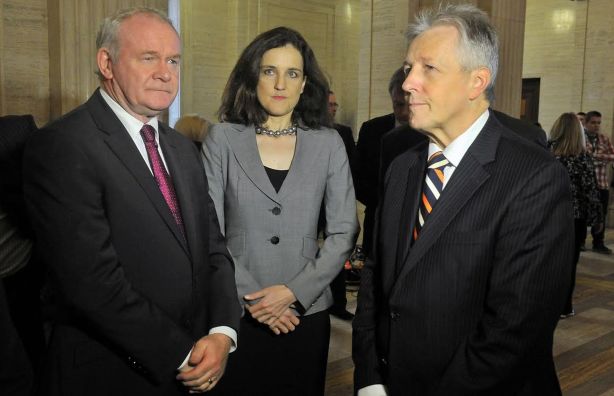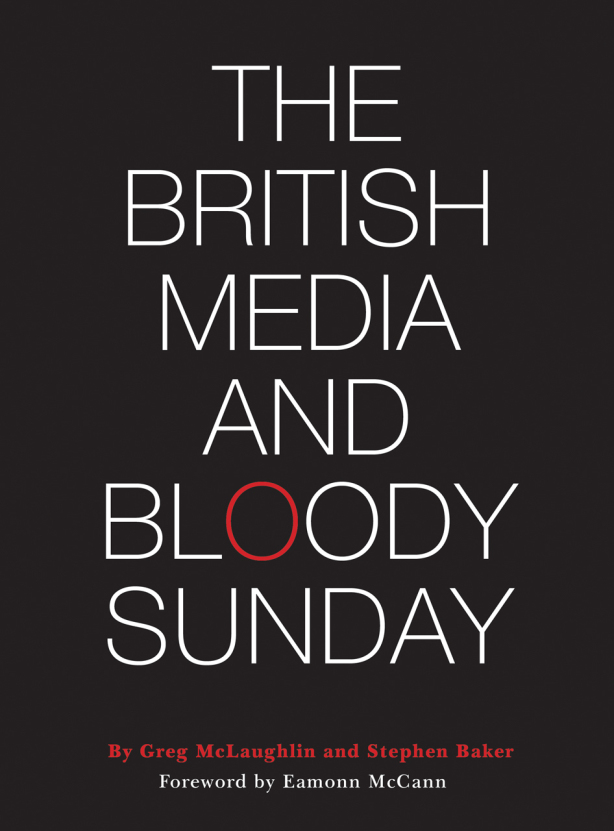At the time of posting, the suicide bombs in Brussels on 22 March have so far claimed 35 lives, 15 at Zaventem airport and another 10 at Maelbeek metro station, and injured over 200 people. As expected, the events received extensive media coverage worldwide, coverage that, as usual now in this era of conflict between the west and the Islamic world, raises questions of accuracy, sensation and propaganda. To illustrate the problem, this limited case study analyzes the coverage across a sample of six British daily newspapers over the two days following the attacks, 23 and 24 March: The Guardian and The Daily Mirror on the centre-left; and, on the centre-right, The Times, The Daily Mail, The Sun and The Daily Star. The coverage tells a story of a seemingly unprovoked terrorist attack on innocent civilians that the ‘bungling’ Belgian intelligence services were unable to prevent; an attack that was set against a background of unchecked immigration and Belgium’s large Moslem, population; and, on the domestic, UK front, one that cast the current Brexit debate into sharp relief in relation to security and immigration.
The headlines
Some commentators expressed puzzlement at first as to the tactical purpose of the attacks, guessing it was meant to simply sow terror among soft civilian tactics. This was certainly the angle taken by the British press the following day:
The Guardian – ‘At least 31 killed after terror attacks rip through Brussels’
The Daily Mirror – ‘The Death Squad’ (with photo, below, of the 3 suicide bomber suspects at airport)
The Times – ‘Bloodbath in Brussels’ (Ditto photo)
The Sun – ‘Primed Suspects’ (Ditto photo)
The Daily Star – ‘UK Alert As 34 Killed In Terror Hell’ (small inset with photo of armed, British police officer)

Instilling terror for terror’s sake was an undoubted objective of the bombers, thought to be linked to Islamic Sate (IS or ISIS). But it also seemed clear that as home to the EU Commission and NATO Headquarters, Brussels held symbolic significance given the involvement of both organisations in the Syria and Iraq. Yet the newspapers barely referred to such a political rationale or to linkage to western military operations in the Middle East (though on TV, the BBC did acknowledge the possibility):
The Guardian – ‘Brussels Killers Linked To Paris Terror Attacks’
The Times – ‘Blunders By Belgium Let Bomber Slip Through Net – Warnings About Airport Terrorist Were Ignored’
The Sun – ‘Terror In Brussels – 5 Bombers On Loose’
The Daily Mail’s front page story that day was about the latest “immigrants found on lorry” story so beloved of that newspaper, while the big front page splash for the Daily Star was the news that footballer, David Beckham, had sealed a deal for his own TV show. A small inset on the left hand corner of the page referred to the fate of a possible British victim of the metro bombing in Brussels – ‘Last text of bomb Brit’. (According to the Star, editorial priorities like these make it a better, brighter paper than the ‘dull, sinking’ Sun.)
On day one of coverage, most of the newspapers devoted several pages inside to detailed and graphic accounts of the bombings, including some quite intrusive images of casualties at Zementev airport. Simon Jenkins in the Guardian (24 March) criticized the broadcasters for their rolling coverage of the bombings, particularly for its hysteria and inane speculation, but the newspapers were just as guilty in those respects. And unlike the broadcasters, the press were able to give full vent to editorial comment and opinion about the bombings. Some of it was variously unwarranted, confused or just plain wrong.
How could the bombings happen and what Europe should do?
The editorial comment and opinion pages in most of the newspapers on the first day of coverage (The Daily Star had none) were dominated by the immediate security and intelligence issues that the attacks had raised and the implications for the wider Brexit referendum debate in the UK. In this sample of newspaper editorials at least, the ideological dividing line appeared to be between left and right. But as normal in the comment and opinion pages of the British press, space is given for debate between opposing viewpoints.
On the right, prescriptions for an apt military or security response were largely mixed with a good dose of Euro-scepticism and pro-Brexit sentiments. The Times was perhaps the most neutral when the day after the bombings it called for a united international stand and better sharing of intelligence (‘After Brussels’, p.31). In the same issue, Roger Boyes lay ultimate blame for the Brussels bombs and the recent attacks in Paris on US President Obama and his military retreat from conflicts in the Middle East. A decisive blow could have been dealt to ISIS before it grew and expanded to the point where it can now launch attacks on western interests anywhere in the world and at times of its choosing (‘Terrorists have filled a vacuum left by Obama’, p.28).
The Daily Mail acknowledged the words of President Hollande, that the bombings were an ‘attack on Europe’, it blamed the attacks on Belgium, ‘a country that has difficulty governing itself and, by common consent, a very poor intelligence service.’ Britain, it said, had to put its own security interests first, take back its borders and close them to free and open movement of people (‘An Attack on Europe’, p.10). In his column on page 11, Michael Burleigh reinforced the ‘blame Belgium’ line, saying that the ‘security failings (were) a damning indictment of a nation whose capital is home to both the European Commission and NATO HQ. How ironic, considering recent events, that the city prides itself on having the nickname, “Spy Central”’ (‘Lethal failures of the Bungling Belgians’). The paper’s guest columnist was John A Bradley, described as an author writing on Middle East issues. He agreed with the Mail’s editorial line but he went much further by insisting that ‘as a result (of immigrant and homegrown Islamic extremists in UK and Europe), we are facing a full-blown, internal Islamist insurgency – and that is exacerbated in tangible ways by the migrant crisis’ (‘With each new atrocity, ever more British voters will feel we MUST reclaim control of our borders’, p.16). The Sun’s editorial took a familiar chauvinistic line when it stated that Britain was safe not because of its membership of the EU but because its security and intelligence services were ‘second to none’ compared with their ‘shambolic counterparts across the channel’, i.e. those in Belgium and France (‘Safety Myth’, p.10). The paper’s political editor, Trevor Kavanagh, put it in balder terms when he argued that a Copycat attack here will push (UK voters) to Brexit’ (p.10).
On the left, The Guardian urged the EU to ‘maintain some perspective and keep a cool head’. Talk of war engulfing Europe, as per French PM Manuel Valls, ‘sets dangerous traps while offering no convincing solutions’ (‘Face Up To This Terrorist Threat. But Don’t Mistake It For War’, p.32). The Mirror argued that ‘any (security) response must be calculated to isolate and defeat the deranged (terrorists) […] So the response must not be knee-jerk. And we must challenge those who seek to exploit what happened in Brussels for their own political ends, preaching nationalism and spreading Islamophobia’ (‘Terrorism Won’t Win’, p.10). Yet elsewhere in the issue, ‘terrorism expert’, Hamish De Bretton-Gordon, urged an immediate military response. ‘Hard and fast surgical attacks by western forces (on IS in Iraq and Syria) backed up by local troops can defeat IS’, he said. ‘Then out fast, letting Kurdish and Iraqi forces take over. Russian President Vladimir Putin showed how effective fast, sophisticated military action can be’ (‘We Must Strike Hard And Fast To Wipe Out IS Evil’, p.9).
Comment and opinion on the second day of coverage, 24 March, turned the focus on the question of how the west should respond to the Islamist threat but for most of the newspapers the question was tied up with the wider Brexit debate. The Times editorial kept its focus purely on the need for a NATO-led military response to ‘fight hard against the very idea of jihad’ (‘Unholy War’, p.37). The Sun on the other hand took a rather more isolationist line. ‘We’re safer out’, it declared, pointing again to ‘Belgium’s catastrophic…failure’ as proof that jihadists simply ‘run rings around MI5’s continental counterparts’ (p.10). This is a reductionist argument, of course. The EU may have its new Europol agency to facilitate cooperation between member police forces but national intelligence services act (as they have always acted) purely in the national interest. So whether or not the UK stays in the EU, whether or not it closes its borders to the free movement of peoples, it will always have to deal with external and domestic terrorist threats.
This conflation of security issues with the Brexit debate simply muddies the waters at a time when voters need a clear understanding of the salient issues. In his regular column for the Times, David Aaronovitch argued that the ‘Terror attacks have nothing to do with Brexit’ (p.33). And the Guardian editorial observed that, ‘What makes the slowly unfolding events in Belgium more unusual (than the Charlie Hebdo and Paris attacks) is that there are some people who want to use the Brussels terror to fuel wider political causes and agendas (that) however unfounded or debatable (may) find a ready audience‘ (‘To claim Britain is safer out of Europe is dangerous and wrong’, p.42). Finally, in the Mail, columnist Yasmin Alabhai-Brown blamed the whole thing on the parents (‘Why will no one admit the way some western Muslims rear their children is fomenting terror?’ (p. 14). But perhaps the most troublesome theme to emerge from the overall coverage of the Brussels bombings was the treatment of the Brussels district of Molenbeek, with its population of 90,000, the majority of which is Muslim.
The ‘problem’ with Molenbeek
In the first day of coverage in particular, the British press seemed to be in doubt that Molenbeek had a lot to answer for as a harbour for Islamist extremists. Elite and popular newspapers on both the right and left sketched a composite picture of the district that left little room for nuance. Much of it was prejudicial if not outright racist in tone.
Among the mid-market, popular papers, Molenbeek was:
‘Jihadi Central’, ‘an extremist ghetto’, ‘a jihadist hotbed’, a ‘hotbed of Islamic extremism’ and ‘home to Europe’s highest concentration of foreign fighters in Syria and Iraq’ (Mirror)
‘a hot bed of young, radical Islamists’ and (with reference to description in Le Monde), ‘a clearing house for jihadism’ (Mail)
a ‘Belgian hotbed of terror recruits’ and a ‘Jihadist ghetto’ (Sun)
The elite papers, the Times and the Guardian, described the district as:
‘a borough…where some neighbourhoods are up to 90% Muslim, (that) is seen by many as a particular problem’, a ‘fertile ground for ISIS recruiters’ and a ‘jihadi centre’ (Guardian)
a ‘suburb where jihadists can be sure of sanctuary’, a ‘nest of terrorists’, ‘a hotbed of radicalism’ whose ‘role in international terror was underlined in 2004 when it was the base of one of the key suspects in the Madrid train bombings’ and that ‘has since been linked to the Charlie Hebdo attackers’ (Times)
The use of sweeping generalization and prejudicial language in these descriptions is bad enough but there is also a problem of proportionality. Using statistics dated 2015 and sourced to the International Centre for the Study of Radicalisation and Political Violence (ICSR), the Guardian (23 March) charted the number of nationals from EU countries per million of population who ‘joined Sunni/Islamist organisations in Syria and Iraq. Belgium came top of the table with 40 compared with 27 from Denmark, 18 from France, 17 from Austria, 9.5 from UK and 7.5 from Germany. Alas, the paper did not extrapolate from these statistics the concrete numbers they represent. The figure of 40 fighters of Belgian fighters per million of a population of just over 11 million equals 440, or 0.004% of the population. The figure of 27 Danish fighters per million of Denmark’s population of 5.6 million equals 151, or just 0.002% of the population.
I could go on but the point is this: these tiny percentages hardly justify the kind of hysterical reactions we see in the newspapers everytime they report terrorist attack like those in Paris and Brussels. Furthermore, as we have seen in Northern Ireland, and in Gaza and the West Bank, the classification of whole peoples into ‘ghettos’, ‘radical hotbeds’, ‘hardline estates’ and ‘nests of terrorism’ only precludes public understanding and makes a violent state response seem justifiable and reasonable. As senior Guardian journalist Simon Jenkins observed, the hysterical reaction of media and public opinion in the west to terrorist attacks is just what organisations such as ISIS and Al Qaida want. They will look upon the coverage and think, ‘job done’ (‘The scariest thing about Brussels is our reaction to it’ (24 March, p.43).
Concluding remarks
I have argued elsewhere that the media in the west have to think about how they cover terrorist attacks on ‘home ground’, which is invariably less sober and objective than the way they report terrorism in North Africa, the Middle East and the Indian sub-continent. They have to ask why these attacks happen, not just how and by whom. They have to stop conflating the problem of terrorism with the problem of immigration in ways that make it easy for us to see every asylum seeker or immigrant as a potential terrorist. And they have to stop blaming the actions of a few on the communities in which those few live. Alas, the chances of that happening are slim because as we have seen so many times, large sections of the British press rarely let facts and the truth get in the way of a good old orgy of hysteria, sensationalism and xenophobia.









